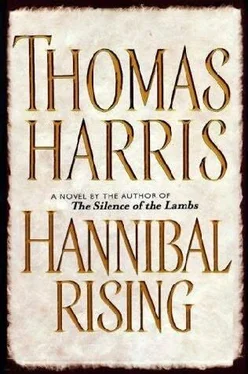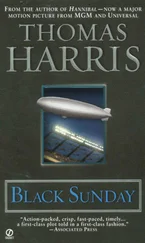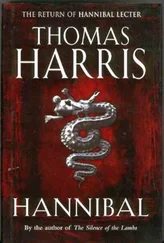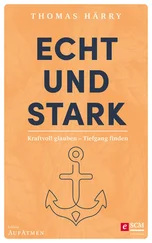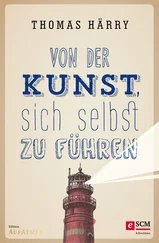"Remaining calm now in the state of wakeful sleep, can you tell me some of the things you see in dreams?"
Hannibal, counting ticks, gave Dr. Rufin a reflective Rubber.
The clock used the Roman IV on its face, rather than IIII, for symmetry with the VIII on the other side. Hannibal wondered if that meant it had Roman striking-two chimes, one meaning "five" and another meaning "one."
The doctor handed him a pad. "Could you write down perhaps some of the things you see? You call out your sister's name, do you see your sister?"
Hannibal nodded.
In Lecter Castle some of the clocks had Roman striking and some did not, but all those that did have Roman striking had the IV rather than IIII.
When Mr. Jakov opened a clock and explained the escapement, he told about Knibb and his early clocks with Roman striking-it would be good to visit in his mind the Hall of Clocks to examine the escapement. He considered going there right now, but it would be a long shout for Dr. Rufin.
" Hannibal. Hannibal. When you think about the last time you saw your sister, would you write down what you see? Would you write down what you imagine you see?"
Hannibal wrote without looking at the pad, counting both the beats of the metronome and those of the clock at the same time.
Looking at the pad Dr. Rufin appeared encouraged. "You see her baby teeth? Only her baby teeth? Where do you see them, Hannibal?"
Hannibal reached out and stopped the pendulum, regarded its length, and the position of the weight against a scale on the metronome. He wrote on the pad: In a stool pit, Doctor. May I open the back of the clock?
Hannibal waited outside with the other patients.
"It was you, it wasn't me," the squirrelly patient offered. "You might as well admit it. Do you have any gum?"
"I tried to ask him further about his sister, but he closed down," Dr. Rufin said. The count stood behind Lady Murasaki's chair in the examining room.
"To be frank, he is perfectly opaque to me. I have examined him and physically he is sound. I find scars on his scalp but no evidence of a depressed fracture. But I would guess the hemispheres of his brain may be acting independently, as they do in some cases of head trauma, when communication between the hemispheres is compromised. He follows several trains of thought at once, without distraction from any, and one of the trains is always for his own amusement.
"The scar on his neck is the mark of a chain frozen to the skin. I have seen others like it, just after the war when the camps were opened. He will not say what happened to his sister. I think he knows, whether he realizes it or not, and here is the danger: The mind remembers what it can afford to remember and at its own speed. He will remember when he can stand it.
"I would not push him, and it's futile to try to hypnotize him. If he remembers too soon, he could freeze inside forever to get away from the pain. You will keep him in your home?"
"Yes," they both said quickly.
Rufin nodded. "Involve him in your family as much as you can. As he emerges, he will become more attached to you than you can imagine."
THE HIGH FRENCH SUMMER, a pollen haze on the surface of the Essonne and ducks in the reeds. Hannibal still did not speak, but he had dreamless sleep, and the appetite of a growing thirteen-year-old.
His uncle Robert Lecter was warmer and less guarded than Hannibal 's father had been. He had a kind of artist's recklessness in him that had lasted and combined with the recklessness of age.
There was a gallery on the roof where they could walk. Pollen had gathered in drifts in the valleys of the roof, gilding the moss, and parachute spiders rode by on the wind. They could see the silver curve of the river through the trees.
The count was tall and birdlike. His skin was grey in the good light on the roof. His hands on the railing were thin, but they looked like Hannibal 's father's hands.
"Our family, we are somewhat unusual people, Hannibal," he said. "We learn it early, I expect you already know. You'll become more comfortable with it in years to come, if it bothers you now. You have lost your family and your home, but you have me and you have Sheba. Is she not a delight? Her father brought her to an exhibition of mine at the Tokyo Metropolitan twenty-five years ago. I had never seen so beautiful a child. Fifteen years later, when he became Ambassador to France, she came too. I could not believe my luck and showed up at the embassy at once, announcing my intention to convert to Shinto. He said my religion was not among his primary concerns. He has never approved of me but he likes my pictures. Pictures! Come.
"This is my studio." It was a big whitewashed room on the top floor of the chateau. Canvases in progress stood on easels and more were propped against the walls. A chaise longue sat on a low platform and, beside it on a coat stand, was a kimono. A draped canvas stood on an easel nearby.
They passed into an adjoining room, where a big easel stood with a pad of blank newsprint, charcoal and some tubes of color.
"I have made a space here for you, your own studio," the count said.
"You can find relief here, Hannibal. When you feel that you may explode, draw instead! Paint! Big arm motions, lots of color. Don't try to aim it or finesse it when you draw. You will get enough finesse from Sheba." He looked beyond the trees to the river. "I'll see you at lunch. Ask Madame Brigitte to find you a hat. We'll row in the late afternoon, after your lessons."
After the count left him, Hannibal did not at once go to his easel; he wandered about the studio looking at the count's works in progress. He put his hand on the chaise, touched the kimono on its peg and held it to his face. He stood before the draped easel and raised the cloth. The count was painting Lady Murasaki nude on the chaise. The picture came into Hannibal 's wide eyes, points of light danced in his pupils, fireflies glowed in his night.
Fall approached and Lady Murasaki organized lawn suppers where they could view the harvest moon and hear the fall insects. They waited for the moonrise, Chiyoh playing the lute in the dark when the crickets faltered. With only the rustle of silk and a fragrance to guide him, Hannibal always knew exactly where Lady Murasaki was.
The French crickets were no match for the superb bell cricket of Japan, the suzumushi, the count explained to him, but they would do. The count had sent to Japan a number of times before the war to try to obtain suzumushi crickets for Lady Murasaki but none had survived the trip and he never told her.
On still evenings, when the air was damp after a rain, they played the Aroma Identification Game, Hannibal burning a variety of barks and incense on a mica chip for Chiyoh to identify. Lady Murasaki played the koto on these occasions so Chiyoh could concentrate, her teacher sometimes providing musical hints from a repertoire Hannibal could not follow.
He was sent to monitor classes in the village school, and was an object of curiosity because he could not recite. On his second day a lout from an upper form spit in the hair of a small first-grader and Hannibal broke the spitter's coccyx and his nose. He was sent home, his expression never changing throughout.
He attended Chiyoh's lessons at home instead. Chiyoh had been engaged for years to the son of a diplomatic family in Japan and now, at thirteen, she was learning from Lady Murasaki the skills she would need.
The instruction was very different from that of Mr. Jakov, but the subjects had a peculiar beauty, like Mr. Jakov's mathematics, and Hannibal found them fascinating.
Standing near the good light from the windows in her salon, Lady Murasaki taught calligraphy, painting on sheets of the daily newspaper, and could achieve remarkably delicate effects with a large brush. Here was the symbol for eternity, a triangular shape pleasing to contemplate.
Читать дальше
